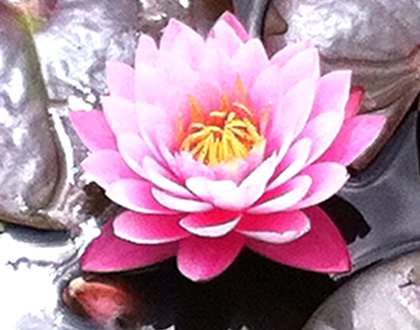
I think most of us like New Years because its message is “begin again.” Perhaps we never got around to doing a fifteen minute yoga practice in the morning, or eating a healthier lunch, or getting more rest, or spending time with friends we haven’t seen in a while, or nourishing a spiritual life. The list can go on and on. I am sure you could add to my examples, but I think you get the point.
The New Year feels like a time to start over something that didn’t go well last year, or renew something that did go well, or just plain begin something brand new we haven’t done before. It can be the work of giving up something that no longer serves us, and finding something that does. It can be a change in thinking, or speaking, or listening, or acting. It can be simply a time to reflect on the path we are on and to look at ourselves in our life with courage.
A new beginning for me this year is to take off one month this winter as a time to reflect upon the directions I want to take in teaching and in my life. To allow myself this space, I will not be offering classes the month of February. Our classes will begin again Wednesday, March 4 and Friday, March 6. We will be continuing with the theme of Whole-hearted Living, focusing on yoga as a tool to help us live more fully and with greater acceptance in our relationships and in our attitudes toward ourselves.
You will notice another new beginning in the upcoming weeks as a redesign of the Yoga 4 Healthful Living website is launched. It is my wish that the site is as simple, useful, and aesthetically pleasing as possible for users on all kinds of electronic devices. I am working with my wonderful “web guy” Ric Albano at 33 Dimensions to bring this about and will welcome feedback on your experience.
I realize this is not the type of blog I usually post, but I believe examining where we are and where we are going to be an important part of yoga. It is a svadhyaya, a kind of self-observation and examination. In this way we can construct an appropriate plan going forward.
How many times have you heard me tell you that yoga is about balance? Recently I came across the following definition of a “balanced lifestyle:” It is “a state of being in which one has time and energy for obligations and pleasures, as well as time to live well and in a gratifying way.”
If ever there is an over-arcing principle that can guide our reflections on and our choices in our work and life, it is this. As you begin this New Year of 2015, it is my wish that you find and enjoy this kind of balanced lifestyle.
